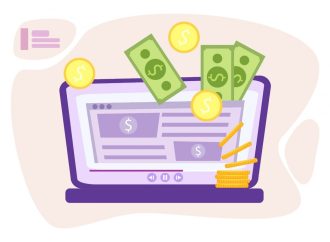Introduction In a world where money talks, it’s no secret that corporate political spending plays a significant role in shaping policy decisions. From campaign contributions to lobbying efforts, big businesses wield enormous influence over lawmakers and government officials. But what are the implications of this power dynamic? How does corporate spending impact the policies that
Introduction
In a world where money talks, it’s no secret that corporate political spending plays a significant role in shaping policy decisions. From campaign contributions to lobbying efforts, big businesses wield enormous influence over lawmakers and government officials. But what are the implications of this power dynamic? How does corporate spending impact the policies that affect our daily lives? In this post, we’ll follow the money and trace its impact on policy decisions, examining how these investments shape everything from tax laws to environmental regulations. Get ready for an eye-opening exploration of the intersection between business and politics – you won’t want to miss it!
The Role of Corporations in Politics
In a democracy, it is vital that corporations be allowed to participate in the political process. After all, they are major players in our economy and have a vested interest in ensuring that policies enacted by our government are conducive to business growth and profitability.
That being said, there is a fine line between corporate political participation and undue influence. Unfortunately, it seems that more and more corporations are crossing that line and using their financial resources to gain an unfair advantage in the political arena.
This needs to stop. Our government should be making decisions based on what is best for the people – not what is best for corporate interests. Corporations should have a voice in the political process, but they should not be allowed to buy influence.
The Impact of Corporate Political Spending
Corporate political spending can have a significant impact on policy decisions. In many cases, corporations will spend large sums of money on lobbying and campaign contributions in an effort to influence lawmakers to support their agendas.
In some cases, corporate political spending can lead to positive outcomes for the public, such as when companies lobby for policies that would benefit the environment or improve worker safety. However, it can also have negative consequences, such as when companies lobby for deregulation that could harm the public or weaken consumer protections.
Corporate political spending is often hidden from the public, making it difficult to track and hold companies accountable for their lobbying efforts. However, there are a few ways to follow the money and trace the impact of corporate political spending on policy decisions.
One way to follow the money is to look at campaign finance records. Companies will often make direct contributions to candidates who support their agenda. You can also look at lobbying disclosure reports to see which companies are hiring lobbyists and how much they are spending on lobbying activities.
Another way to trace the impact of corporate political spending is to look at how industries are affected by specific policies. For example, if a particular industry is heavily regulated, you might see more lobbying and campaign spending from that industry in an effort to influence policymakers to loosen regulations. Alternatively, if an industry is not regulated enough, you might see more spending in an effort attemptto block stricter regulations from being put into place.
By following the money, it is possible
Tracking the Money
In the wake of the Supreme Court’s Citizens United decision, corporations have been increasingly active in politics, spending billions of dollars on elections and lobbying. This surge in corporate political activity has had a profound impact on policymaking, as evidenced by a growing body of academic research.
In one groundbreaking study, researchers tracked the political spending of publicly traded companies and found that those that spent more on politics were more likely to receive favorable treatment from lawmakers. The study’s authors concluded that “corporate America has enjoyed an extraordinary return on its political investment.”
Other research has shown that corporate lobbying is a major driver of inequality in the United States, as businesses with greater resources are able to shape policies in their favor at the expense of workers and consumers. Corporations have also been shown to exert influence over the regulatory process, often using their power to water down or block regulations that would benefit the public.
The rise of corporate political activity has led to calls for reform, with some advocating for stricter disclosure requirements and others calling for an outright ban on corporate spending in elections. Whatever reform measures are ultimately enacted, it is clear that tracking the money will be essential to understanding the true impact of corporate power on American democracy.
Conclusion
Corporate political spending to influence policy decisions is a topic of great importance and debate. With increasing exposure of the potential consequences and opportunities for reform, the public has greater access to information than ever before about how corporate money impacts our government. This article has provided an overview of what follows the money in political spending, as well as potential actions that can be taken to increase transparency and accountability for corporate expenditures used in influencing policy decisions.





















Leave a Comment
Your email address will not be published. Required fields are marked with *